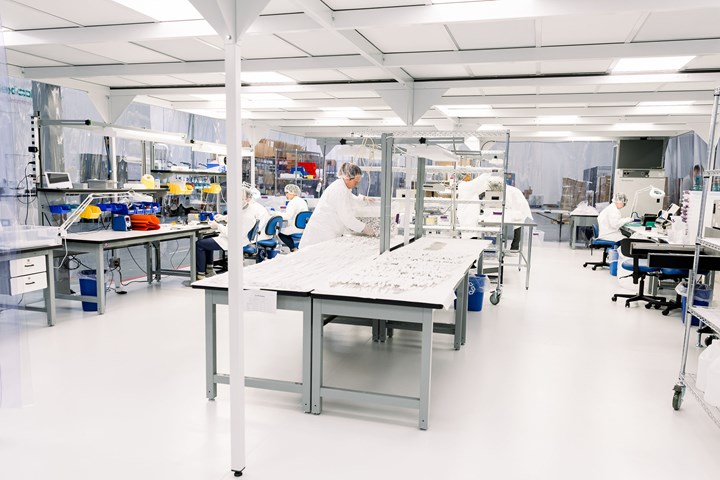Medical Murray Expands Facilities in Illinois
The medical contract manufacturer added cleanrooms, a testing lab and injection molding space between sites in North Barrington and Lake Zurich.
Medical device design and contract manufacturing firm Medical Murray (North Barrington, Ill.) added a 5200-ft2 dedicated lab to its headquarters and R&D facility in North Barrington, plus a 1600-ft2 Class 7 cleanroom in Lake Zurich, including new injection molding machines.
The new dedicated lab in North Barrington will test devices to ISO and ASTM standards, while also allowing the company to expand prototyping capacity. In a release, Tanner Hargens, Medical Murray’s VP of business development, said the addition gives the company’s engineers full access to a new ISO/IEC 17025 certified testing lab for development and research purposes.
In the 45,000-ft2 Lake Zurich manufacturing facility, the 1600-ft2 Class Class 7 cleanroom adds new injection molding machines, as well as expanded storage and workspace. Medical Murray notes that these additions come a little over a year after the opening of a 30,000-ft2 R&D and manufacturing space in Charlotte, N.C. Between the three facilities, the company now occupies a total area of 85,000-ft2. All three facilities are ISO 13485:2016 certified and FDA registered.

Medical Murray’s latest expansion includes a Class 7 cleanroom at its Lake Zurich, Ill. facility.
Related Content
-
Consistent Shots for Consistent Shots
An integral supplier in the effort to fast-track COVID-19 vaccine deployment, Retractable Technologies turned to Arburg and its PressurePilot technology to help deliver more than 500 million syringes during the pandemic.
-
Custom Molder Pivots When States Squelch Thriving Single-Use Bottle Business
Currier Plastics had a major stake in small hotel amenity bottles until state legislators banned them. Here’s how Currier adapted to that challenge.
-
Medical Manufacturer Innovates with Additive Manufacturing and Extrusion Technology Hubs
Spectrum Plastics Group offers customers two technology hubs — one for extrusion, the other for additive manufacturing — to help bring ground-breaking products to market faster.












